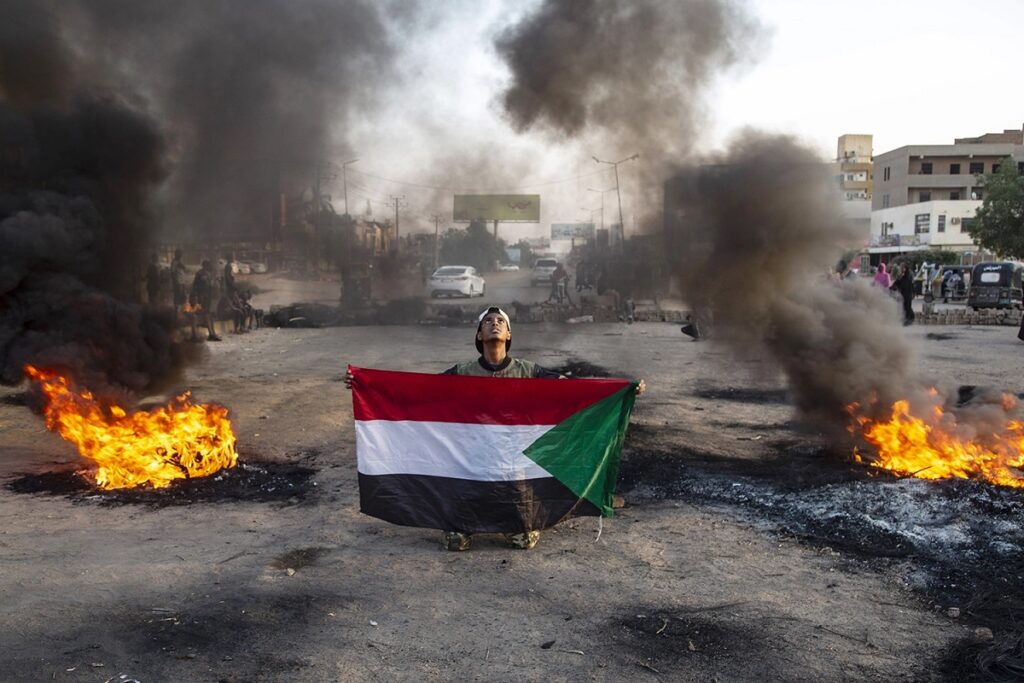- IMF: Juba is grappling with economic woes partly resulting from the spillovers of the war in Sudan and recurrent flooding.
- Oil revenues are exhausting because the pipeline that carries 70% of South Sudan’s oil exports has been inoperable since February 2024.
- These challenges are negatively impacting the country’s economic and social outcomes.
The ongoing war in Sudan, as well as floods attributable to extreme weather patterns, have pushed South Sudan’s economy to the red, with reports showing the country suffered -6 percent contraction in the period ending June 2024
In an update shared by the International Monetary Fund (IMF), South Sudan faces “several difficult macroeconomic challenges,” chocking growth in Africa’s youngest country.
The IMF said that authorities in Juba are grappling with economic woes “partly resulting from the spillovers of the war in Sudan and recurrent flooding.” The multilateral lender noted that this double whammy of challenges negatively impacts the country’s economic and social outcomes.
War leaves South Sudan staring at record-low revenues
As the war rages between rival factions of the military government of Sudan, the Sudanese Armed Forces (SAF) under Abdel Fattah al-Burhan and the paramilitary Rapid Support Forces (RSF) led by Hemedti, the IMF says South Sudan’s oil pipeline system in the north has been left unattended, negatively affecting the country’s primary revenue source.
The pipeline that carries about 70 per cent of South Sudan’s oil exports has been inoperable since February 2024, the Washington-based lender said following its September 25−October 2, 2024 visit in Juba.
IMF noted that authorities in Juba are increasingly finding it difficult to carry out necessary pipeline repairs because the pipeline runs through war-torn Sudan.
In addition, disruptions to freight traffic in the Red Sea have increased insurance costs for the oil cargoes supplied through South Sudan’s other pipelines. The war also resulted in a large influx of refugees to South Sudan.
“Against this backdrop, South Sudan is estimated to have experienced an economic slowdown during the fiscal year 2023/24 (July 2023−June 2024), with a real GDP growth close to -6 per cent, driven by the oil exports drop during the first half of 2024,” explained Mame Astou Diouf, IMF’s mission chief for South Sudan.
“The slowdown is projected to continue during the fiscal year 2024/25 as the oil production shock persists. Economic prospects are expected to improve in the medium term as the effects of the shocks recede,” Diouf added.
South Sudan hit hard by the disruption of the Red Sea shipping route
The Diouf-led mission met with Mariel Dongrin Ater, Minister of Finance and Planning; Governor of the Bank of South Sudan James Alic Garang, Commissioner General of the South Sudan Revenue Authority. Mr. Africano and other senior government officials.
According to the IMF, Juba’s economy has also been dealt a body blow by the continued disruption of the Red Sea shipping route, where rising tensions in the Middle East have conspired to hurt business. Consequently, players in South Sudan’s oil business are now forced to pay high premiums for insurance for oil cargoes.
“The war also resulted in a large influx of refugees to South Sudan,” the IMF pointed out, highlighting another layer of complexity in the country’s fledgling economy.
Moreover, the country’s forex market is in chaos following the loss in the value of South Sudan’s currency amid runaway inflation, which hit 107.3 per cent in July 2024.
“The parallel FX market premium remains large (51 per cent on September 26, 2024), despite a recent gradual depreciation of the official exchange rate. The combination of reduced FX inflows and resumed monetary financing to cope with the shock resulted in a large depreciation of the parallel market exchange rate of 222 per cent in the nine months to September.”
With reduced revenue flows due to the stoppage of oil shipments, executing the country’s FY23/24 budget proved difficult. However, the IMF observed that authorities in Juba rolled out measures to administer dwindling collections better. Oil revenue accounted for about 16 per cent of the East African country’s collections as of December last year.
Civil servants have been going without salaries
Also hit were civil servants who have been forced to go for months without salaries. At the same time, President Salva Kiir’s government has experienced delayed fiscal reporting partly due to persistent technology challenges across key institutions.
“The draft budget for the fiscal year 2024/25 was submitted to Parliament and tabled on September 25, 2024. The draft budget includes provisions for the repayment of accumulated salary arrears. Two months of salary were paid during July and August 2024, except for foreign mission civil servants whose salary payments are constrained by FX availability.”
Investment is planned to focus on building roads to support the redistribution of agricultural products across the country,” the IMF said in a statement.
“Monetary policy has struggled to contain inflationary dynamics due to rapid reserve money growth and limited FX auctions. This is despite using the term deposit facility created in October 2022 to improve liquidity management.
IMF: What Juba can do to turn the tide
According to the IMF, South Sudanese authorities’ policy and reform agenda encompasses a broad-based macroeconomic policy recalibration aimed at tackling key challenges, including–
- Near-term concomitant fiscal, monetary, and exchange rate policy adjustments to cope with the oil production shock.
- Prudent macroeconomic policies to maintain economic stability and debt sustainability and
- Reforms to further improve governance and transparency. Given the humanitarian situation, the authorities will also work with development partners to continue supporting the vulnerable population and reduce food insecurity.
The IMF team also discussed performance towards the PMB quantitative targets at the end of June 2024 and progress in implementing the structural benchmarks.
Read also: Millions at Risk of Famine as Fuel Tax Row Halts UN Aid Operations in South Sudan




